Please find below a list of all intermediate, advanced and critical studies art electives for Spring 2026. For additional information, refer to Student Information Online (SIO).
INTERMEDIATE STUDIOS
Enrollment in intermediate studios is prioritized for sophomores in the BFA and BXA-Art programs. BFA and BXA-Art juniors and seniors can enroll in these courses if space is available and use them to fulfill advanced studio requirements.

Animation Fundamentals – 60202
M/W 10am-12:50pm | Prof Jamie Wolfe
This course offers an introduction to animation as a time-based art form, focusing on the fundamental principles of movement and motion. Through weekly lectures, screenings, assignments, and hands-on workshops, students will develop skills in core concepts of animation including timing, force, weight, rhythm, framing, and performance while exploring techniques in hand-drawn, stop motion, and under-the-camera methods. Technical demonstrations will introduce pipelines that incorporate digital tools including Adobe After Effects, Adobe Premiere, and Dragonframe. Screenings will present both historical and contemporary works, contextualizing animation within the broader history of art and cinema. By the end of the semester, students will have built a strong foundation in animation principals, along with the technical and conceptual vocabulary necessary for more advanced ETB courses.

Fabricated Realities: Live Action, Animation, and VFX – 60209
M/W 2-4:50pm | Prof Suzie Silver
In today’s media production landscape, the lines between live-action footage, animation, and visual effects (VFX) have dissolved, leading to the prevalence of hybrid moving image media. This course invites you to explore the experimental potential of these new forms, embracing collage aesthetics and the intersection of traditional and non-traditional media to create unique imaginative worlds. In this course you’ll gain a solid foundation in experimental hybrid filmmaking through practical, hands-on experience, primarily using Adobe After Effects, Photoshop, AI and other key production and post-production tools. The emphasis is on creative experimentation, encouraging you to develop a distinct artistic voice by pushing the boundaries of these tools and techniques. For inspiration, we’ll engage with essential readings and screenings of groundbreaking works from a diverse group of contemporary and historical artists, including Yuge Zhou, Shana Moulton, Tabita Rezaire, Rachel MacLean, Sin Wai Kin, RUFFMERCY, Saya Woolfalk,Nam June Paik and many others. There will be in-class demos and workshops. Some class time will also be reserved for you to work on exercises and short video experiments that integrate video, animation, and visual effects. You will be expected to work on your exercises and video projects outside of class, too. You will participate in regular screenings and critiques to refine your technique and creative vision. By the end of this course, you will have the technical skills and creative vocabulary to produce original and compelling moving image works that confidently blur the boundaries of reality.

Real-Time Animation – 60218
T/R 2-4:50pm | Prof Johannes DeYoung
This course offers a practical introduction to making and experiencing animation within real-time graphical frameworks. Students will gain hands-on experience creating expressive animation and experimental artworks that utilize real-time graphics engines and interactive techniques.

Digital Fabrication – 60230
T/R 11am-1:50pm | Prof Steven Sontag
Digital Fabrication is an intermediate studio course that introduces students to the creative and technical possibilities of 3D modeling and digital fabrication processes in contemporary art practice. A primary focus of the class is on learning and applying 3D modeling software and digital drafting tools to design, refine, and prepare files for physical output. Through iterative projects, students will explore additive and subtractive processes — including 3D printing, laser cutting/engraving, and CNC machining — while also considering how to move beyond the build footprints of machines through assembly, scaling, and hybrid techniques. The class emphasizes experimentation with multiples, modular forms, and systems of construction, encouraging students to think critically about how digital tools extend and transform sculptural practices. Alongside technical skill-building, the course connects digital processes to studio-based concepts, introducing students to artists who have integrated 3D modeling and fabrication into their work. No prior experience with digital fabrication is required.

Ceramics – 60234
T/R 2-4:50pm | Prof Yoko Sekino-Bové
This course is a comprehensive introduction to the craft of ceramic art. Students will investigate clay as an art material for personal expression. The primary emphasis is on studio work leading to a portfolio of finished pieces by the end of the semester. The goal of this course is that students will be able to create expressive, three-dimensional clay forms with the proper understanding of the materials and process. The topics include, but are not limited to, various construction techniques such as soft and hard slab, pinch, coil, and wheel-throwing. Also, surface treatment techniques such as texturing and underglaze painting will be introduced. Discussions will include contemporary artists working in ceramics as well as historical examples and various approaches and techniques for working in clay. This course will consist of demonstrations and lectures, research/writing assignments in and out of class, as well as work time. Students will develop a body of work within the context of the projects to express their individual voice. This course requires students to participate in critiques to analyze their own and others work and identify strengths and weaknesses while promoting artistic growth and the exchange of ideas. No prior experience in clay is required.
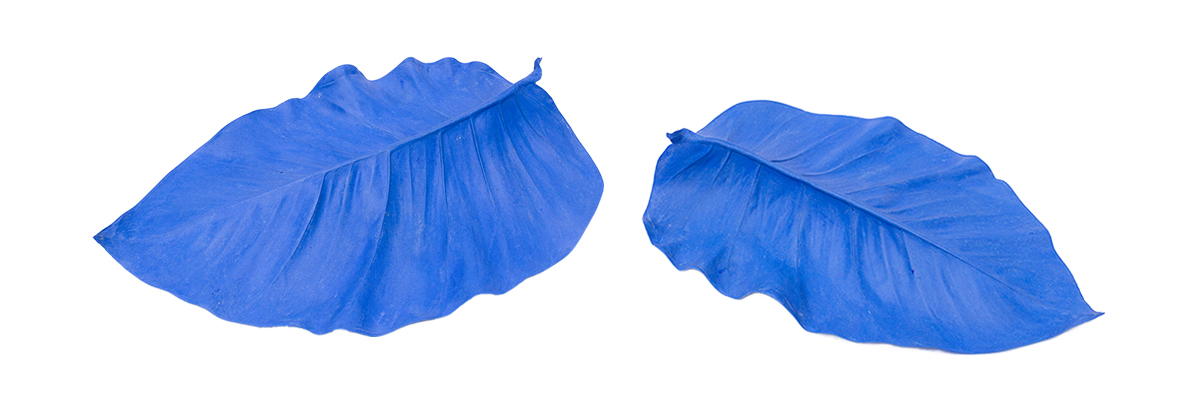
Mold Making – 60238
M/W 8-10:50am (Section A) & 2-4:50pm (Section B) | Prof Rachael Starbuck
This intermediate course will expose students to basic mold making and casting techniques using a variety of materials and processes. This course will cover a wide range of mold making techniques, from one-part molds to more complex multipart and brush-on molds. Throughout the course we will be utilizing plaster, silicone, resin, urethane rubber, wax, expanding foam and more. As students develop their mold making toolkit they will learn to assess various casting processes and properties to determine which process is best for each project. Students will experiment with casting in a variety of traditional and non-traditional materials while understanding safety protocols and the advantages and disadvantages of each. Students will learn various methods to finish and surface cast objects and we will discuss how a cast object can be incorporated into their broader art practice. Students will be introduced to contemporary artists who have used a wide range of mold-making processes in their studio practices and will be asked to consider the formal and conceptual implications of working in material transformation and multiples. Group critiques will challenge students to engage and participate in critical readings of sculptural works created through various casting processes learned in class.
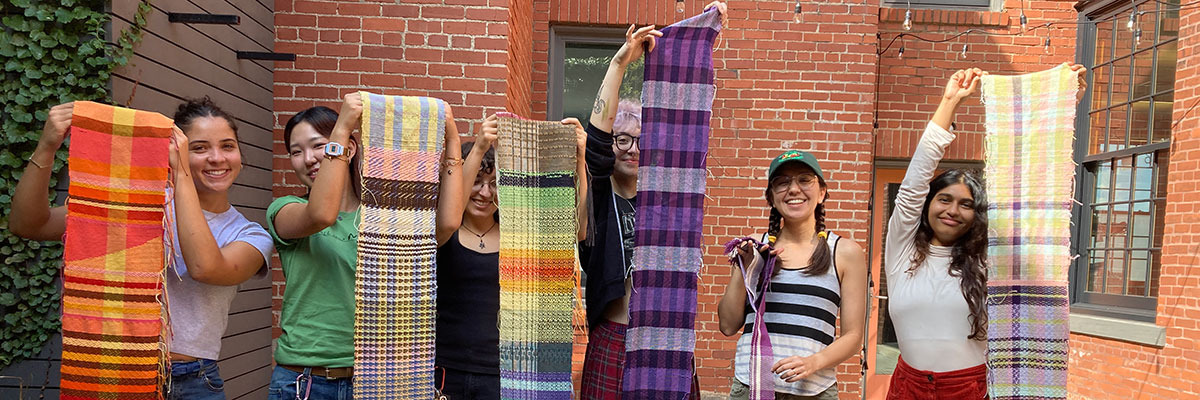
Intro to Weaving – 60247
F 10am-12:50pm & 2-4:50pm | Prof Jamie Boyle
Learn ways of weaving this Spring in the Fibers Studio at Contemporary Craft! Throughout this course, students will learn technologies of weaving with a primary focus on the use of multi-harness floor looms. After a basic introduction to the mechanics of a loom, we will follow the question, “what will the cloth do?” as students learn to design, develop, draft and create individualized projects. Together, we will learn to read aspects of cloth, discovering patterns and design among the interlacements, while considering histories, meanings, and possibilities. We will also look to the work of contemporary weavers — and weavers past — as well as read historic, modern, and contemporary thinkers to broaden our conversation beyond the studio walls. Weaving can become many things—the source of a poem, the creation of community, the canvas of a painting, a garment, a cloth, a sculptural form, an image, and beyond. This course will be a serious and joyful exploration of the craft, offering individualized attention and project guidance. Note: this course will take place off-campus in the Contemporary Craft Timmons Studios, located in the Lawrenceville neighborhood of Pittsburgh.

Watercolor – 60248
M/W 7-9:50pm | Prof John Guy Petruzzi
This course provides an introduction to working technically and conceptually with watercolor painting. Students develop skill with color mixing, design planning and paint-handling, while interpreting painting exercises on various paper surfaces. Topics covered include color interaction, transparent layering, wet-on-wet applications, highlight preservation and masking, compositional strategies, surface management, and general craftmanship. Classes consist of demonstrations, visual presentations, individual consultations and group critiques designed to promote successful creative outcomes and advance students toward unique approaches to watercolor painting.

Painting Image and Form – 60250
T/R 10am-12:50pm | Prof Paul Mullins
This course serves as a bridge between introductory and advanced study in painting. Further explorations of technical problems are expected, with contemporary and conceptual concerns incrementally added. Students will enjoy examining color, the material itself, forays into abstraction, and learning to work in series. These inquiries are in preparation for the autonomous work that lies ahead, and seek to equip young artists with understanding of practices that will be utilized there forward. Development of one’s own ideas and working in concert with the professor and advancing critique skills will also be emphasized.

Print Media – 60251
T/R 2-4:50pm | Prof Kellie Hames
This class is a general introduction to four fundamental techniques of traditional Printmaking. Printmaking is a process-based medium that produces multiples of original artworks. Students will create four works on paper using the following printmaking approaches: Relief (carved), Intaglio (engraved), Lithography (planographic), and Screen Printing (stencil). Each technique’s unique set of materials, processes and aesthetics will be explored. This course focuses on traditional tools and practice, but will include utilization of digital images and sources through a critical lens. While primarily focused on the learning of fundamental approaches, the class will also expose students to ways that Print Media can be a tool (physically and conceptually) in contemporary practice.

Screenprint – 60258
M/W 2-4:50pm | Prof Mary Tremonte
This course is a comprehensive and intensive study of Serigraphy (screenprinting), one of the most versatile and contemporary of printmaking techniques. The course is focused upon the mastery of this process. Students will explore multiple methods of image making (from hand-drawn to digital imaging) and will be introduced to CMYK (full color) printing. The emphasis of this course is on artistic work on paper, but will also be exposed to the ways that screenprint can work across a wide range of different media: from 2D (paper, canvas, cloth) to 3D (book forms, sculpture, installations) and utilizing printed multiples in participatory and exchange based artworks, including zines and other artist publications.
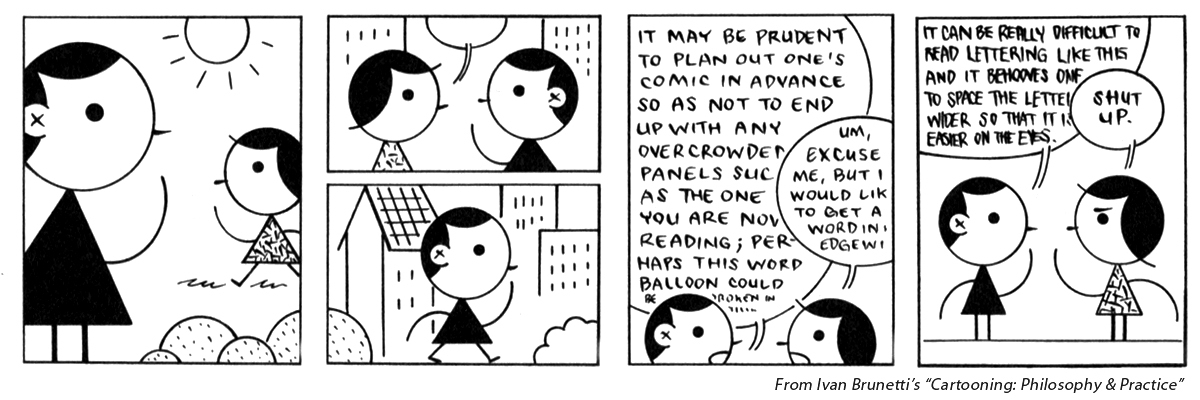
Graphic Novel – 60263
M/W 2-4:50pm | Prof John Peña
In this course, students will critically and creatively engage with the form of the graphic novel to learn how to better communicate their ideas through the medium as well as challenge its boundaries. In addition to creating new works of art, we will explore the origins of the “modern” graphic novel. Students will also be exposed to graphic and non-graphic artists whose works have challenged and redefined the genre. We will explore these artists to understand how our work borrows from and draws upon a rich lineage. Students will also be expected to think beyond the commonly accepted notions of a graphic novel and question their work’s relevancy in this medium. Finally, each student will produce a new body of work that will culminate in the production of a 4-5 page sequential narrative.
CRITICAL STUDIES
Critical studies electives are open to sophomore, junior, and senior BFA and BXA-Art students.

Disordered Attention, Reordered Self: Art and Identity Onsite and Online – 60331
W 10am-12:50pm | Prof Elizabeth Chodos
This interdisciplinary seminar investigates how ubiquitous, networked technologies, such as smart phones, have reshaped the conditions of spectatorship and the construction of selfhood in contemporary art. Anchored by Claire Bishop’s recent book, Disordered Attention: How We Look at Art and Performance Today, the course explores how digital platforms, algorithmic feeds, and hybrid exhibition formats have disrupted traditional modes of viewing and engagement, giving rise to fragmented attention and new forms of subjectivity. Through critical readings, animated seminar discussions, artist case studies, and written analyses of online and onsite exhibitions, students will examine how artists respond to and reflect the shifting dynamics of attention, presence, and identity in a media-saturated world. This course emphasizes discursive modes of interpretation and will help students hone their critical thinking skills and ability to translate developments in visual culture into meaningful discourse.

The Art of the Detour: The History of Walking and Wandering – 60345
R 2-4:50pm | Prof Kim Beck
This seminar investigates walking not only as a physical act but as an artistic and critical practice. We will trace connections between walking and psychogeography, performance, Fluxus, and urban studies, considering how wandering shapes perception, memory, and critique. Readings from Walter Benjamin, Rebecca Solnit, Janet Cardiff, and others will anchor our discussions, while students put theory into practice through guided walking experiments. Together we will explore how the seemingly ordinary act of moving through space intersects with surveillance, mapping, resistance, and storytelling.

Epic Adventure: Art as Uncommon Storytelling – 60352
T 7-9:50pm | Prof Jongwoo Jeremy Kim
This course examines the history of art and narrative across more than a century, beginning with the Pre-Raphaelite Brotherhood and extending to contemporary figures such as Nicole Eisenman, Ayoung Kim, and Salman Toor. Class discussions explore works that disrupt established ideas of wordless plot construction, temporal coherence, nonlinear storytelling, and other strategies of narration. Weekly topics address the influence of ancient mythology, ghost stories, knightly quests, science fiction, romance novels, investigative journalism, and popular film on our visual imagination.

History of Tomorrow: Art as Foresight – 60354
W 2-4:50pm | Prof Jongwoo Jeremy Kim
This class investigates the history of art and technology. Early in the semester, we address topics such as Russian Constructivism and the Bauhaus. Tracing subsequent developments throughout the twentieth century including Afrofuturism, the course concludes with a case study of AI’s impact on contemporary art. Artists under consideration include Anicka Yi, Wangechi Mutu, Ian Cheng, Cory Arcangel, Refik Anadol, and John Akomfrah. The history of “no tomorrow” and various depictions of apocalypse also enrich our discussions.

Science Fiction Film – 60378
W 7-9:50pm | Prof Suzie Silver
Science Fiction Film offers an idiosyncratic international survey of science fiction film. More than just a form of entertainment, science fiction is a powerful tool for exploring our hopes, fears, and dreams about the future. Together we will explore how filmmakers have used the science fiction film genre to explore both the timeless human condition and the complex issues of their time. In addition to studying the films themselves, we will consider the various cultural, social, political, and technological contexts in which they were created as well as how the films have themselves influenced society and culture. While we will view a number of commercially successful films,we will also view films that center underrepresented stories and voices. Throughout the course, we will watch and think through a variety of science fiction films, from international and independent productions like “Vesper”, “Neptune Frost” and “Born in Flames” to blockbuster and studio productions like “Nope,” “Snowpiercer” and “Children of Men”. Through weekly readings, film screenings, and class discussions, students will analyze film as a creative medium of visual storytelling, social commentary and imagination. Assignments include personal written responses to the films and readings and a semester long small group or individual creative audio-visual research project. This course is designed to assist in the development of your abilities in storytelling, audio-visual literacy, media analysis, creative research and critical thinking through the medium of Science Fiction Cinema. You will be asked to consider the representation of gender, race, class, sexuality, history, empire, nation, and more in every film we watch. We will also explore ideas and theories from cinema studies. While Science Fiction Film offers a necessarily (very) incomplete view, it does reflect the perspectives and aspirations of its many filmmakers.
ADVANCED STUDIOS
Enrollment in advanced studios is prioritized for juniors and seniors in the BFA and BXA-Art programs. Sophomore BFA and BXA-Art students can enroll with faculty permission if and when space is available.

The Animated Short – 60406
M/W 2-4:50pm | Prof Jamie Wolfe
This course guides students through the complete process of creating an original animated short film, from early concept to final screening. Beginning with ideation strategies, students progress through concept development, storyboarding, animatics, animation production, sound and post-production. Class sessions combine lectures, screenings, critiques, and in-class lab time, providing structured opportunities to experiment, share works-in-progress, and receive feedback. The course emphasizes project planning, creative problem-solving, and strategies for working within limitations and tight deadlines. Students may work in any technique or genre, with projects ranging from narrative to abstract. Weekly screenings of diverse animated shorts, accompanied by discussions, will provide context and inspiration throughout the semester. By the end of the course, each student will have completed a 90-second film that demonstrates both personal voice and technical craft.
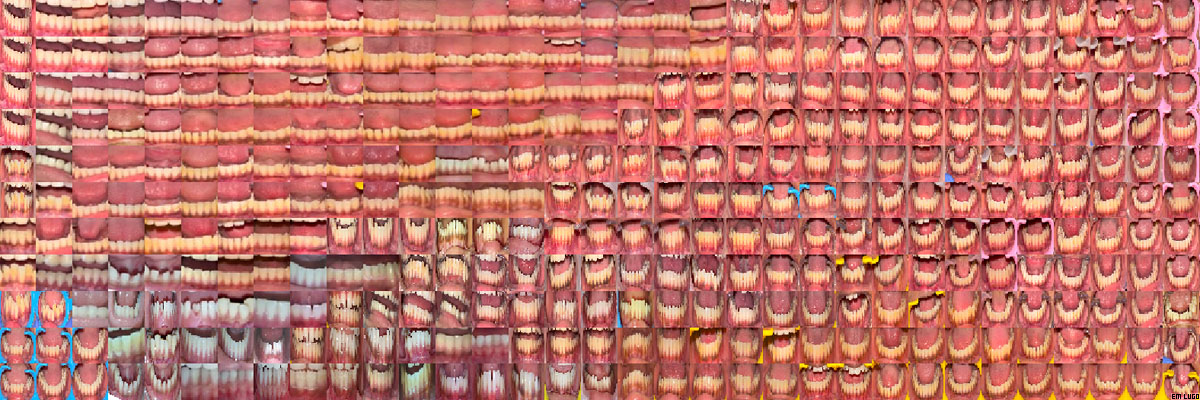
Creative Coding – 60412
M/W 2-4:50pm | Prof Golan Levin
This advanced studio course supports students in developing ambitious independent projects at the intersection of art and computation. Building on the foundations of Creative Coding (60-212), students will deepen their fluency with programming as a medium for artistic practice, while pursuing individual investigations in areas such as generative art, gestural interactivity, experimental visualization, machine drawing, hedonic computing and weird software. The course emphasizes self-directed research and sustained project development. Students will refine technical expertise in contemporary creative coding environments, explore novel workflows that combine imaging and machine intelligence, critically situate their work in relation to historical and current practices in software art, and learn strategies for articulating conceptual intent alongside technical execution. Class time will balance structured technical workshops, peer critiques, and guided discussions with opportunities for students to prototype, iterate, and present evolving projects. The aim is to foster independent, critically engaged artistic practice in code, equipping students to move fluidly between experiment and execution, and to position their work within wider discourses of art, design, and technology. Prerequisite: 60-212, or permission of instructor.

Experimental Game Design: Postgaming – 60418
F 10am-12:50pm & 2-4:50pm | Prof Paolo Pedercini
Experimental Game Design: Postgaming is an intensive game-making class focused on rapid prototyping and creative risk-taking. The course examines a game industry in the midst of transformation (and possible implosion) while tackling crucial questions in contemporary game-making. In the first half of the semester, students will create a new game prototype every two weeks, each one responding to a provocative prompt. This phase builds on the established practices of game jams and serial experimentation in independent development. Topics include streaming culture, the attention economy and market saturation, viral marketing on social media, the rise of generative AI, and more. In the second half of the semester, the most promising prototypes will be iterated, playtested, and refined into complete projects. The course is format-agnostic and encourages “out of the box” solutions: you may use any engine or programming language, and rely on as much “vibe coding” as you like. Mods, tabletop and physical games, interactive performances, and other playful experiences are all welcome. Students will generally work in teams of three, solo projects are allowed. No previous experience is required. The class meets only on Fridays, during the late morning and afternoon sessions, with a one-hour break in between.
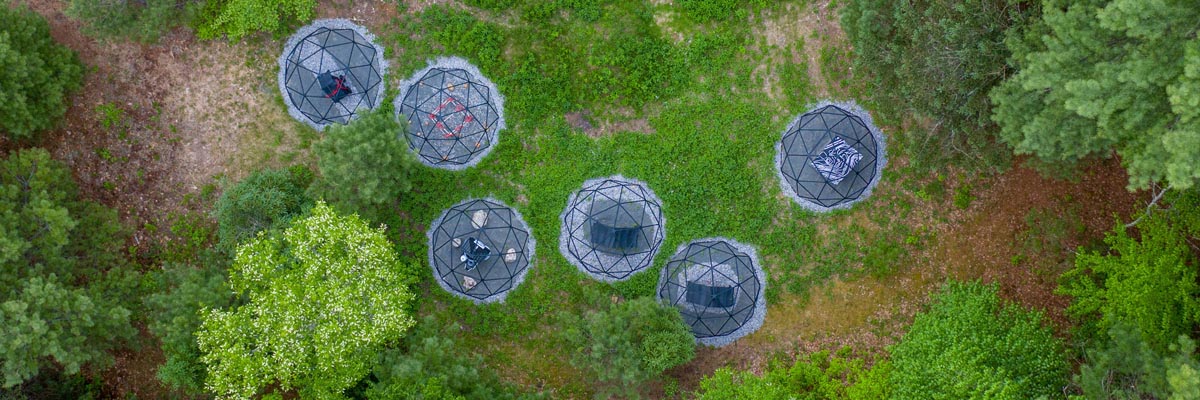
Open Sculpture – 60430
T/R 8-10:50am | Prof Marvin Touré
Open Sculpture is an Advanced project-based studio class that allows for student-driven development of an artistic practice in 3D media, installation, site specific work, interactive systems, and more. Through hands-on-making, in class work time and studio time, group critiques, discussions, and short reading and writing assignments, students will develop their abilities to turn ideas for three dimensional works into proposals, prototypes, and finished projects. Artists will build 2 to 3 major projects from start to finish, develop a working bibliography for their practice, and hone their individual sense of creative identity through the development of personal research interests, aesthetic sensibilities, and their own critical language surrounding common themes through their projects.

Cabinets to Collections: Art, Ecology, and Natural History – 60432
M/W 2-4:50pm | Prof Britt Ransom
This studio course introduces students to the creative potential of engaging with natural history and botanical collections as a foundation for their artistic practice. The class centers on direct encounters with specimens, archives, and displays from neighboring institutions and museums, using these experiences to inspire research-driven projects that merge observation with experimentation. Through iterative assignments, students will investigate how methods of classification, collection, and display shape our understanding of the natural world, and how artistic practice can reimagine these systems through sculpture, installation, and digital processes. Emphasis is placed on experimentation with form, material, and narrative, encouraging students to critically consider how collections can be reframed, questioned, or transformed into alternative systems of meaning. Alongside project development, students will connect their own work to broader conversations about ecology, taxonomy, and representation, examining how collections embody cultural, historical, and environmental significance. The course integrates research, studio practice, and multiple site visits to collections off campus to build a framework for developing original works that reflect on the layered relationships between art, museums, and the natural world.
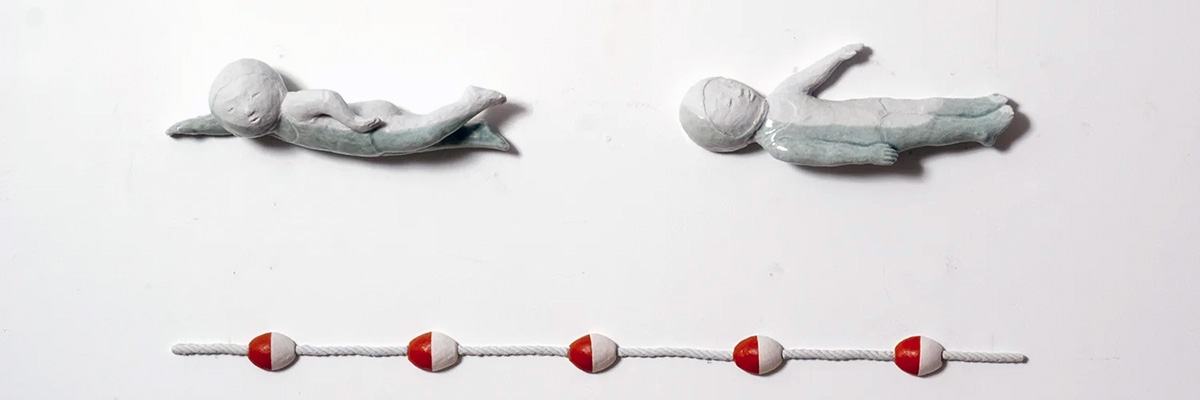
Advanced Ceramics – 60434
T/R 7-9:50pm | Prof Sarah Tancred
In this course, students will explore clay as a medium for personal expression. They will enhance their technical skills using materials and processes aligned with their concepts, while developing aesthetic sensibilities through historic and contemporary references in ceramics and other arts. In addition to concept-based projects, students will engage in technical projects to broaden their experience with clay, including mold-making, slip-casting, glaze formulation, and advanced ceramic surface techniques. Students may execute conceptual projects using ceramic techniques of their choice. Students will be provided with technical demonstrations, lectures with artist examples, and studio work time. Throughout this course, students will develop and analyze ideas through individual research, creation of a body of work, and group critiques.
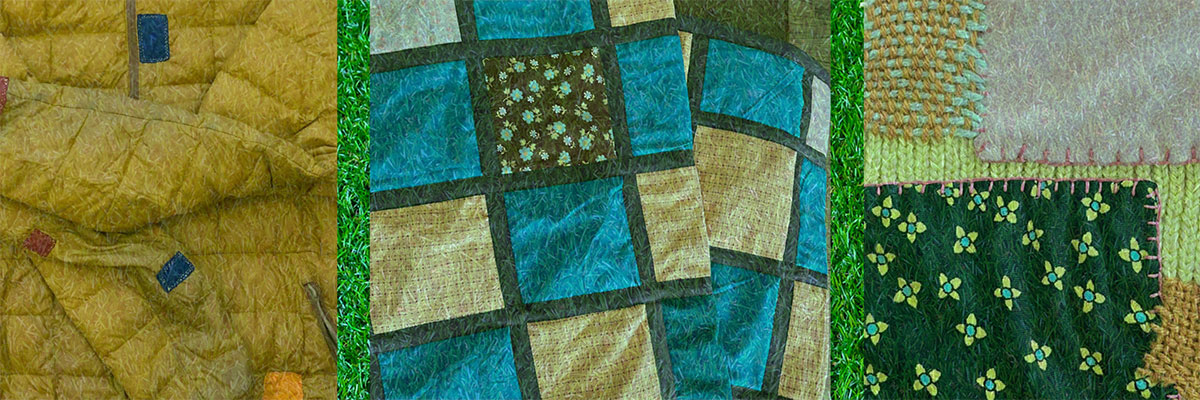
Soft Sculpture – 60442
M/W 10am-12:50pm | Prof Rebecca Harrison
In this class, we will explore techniques for creating, manipulating, and embellishing fabric, fibers, and soft materials, with a focus on demonstration and practice of the following skills: hand and machine stitching/ seaming, sewing with non-traditional / non-fabric materials, free motion machine embroidery, needle felting, planning and execution of quilting and 3-d objects, knit and crochet, and the care and manipulation of existing garments and textiles through repair, reconstruction, and redesign. We will also explore and discuss historical and sociopolitical contexts of textiles and garments; specifically, the history of cloth and garment making, the expression of collectivist and individualist identities through textiles, fiber art in the 20th–21st centuries, and the current state of waste vs sustainability within the fashion and home goods industries.
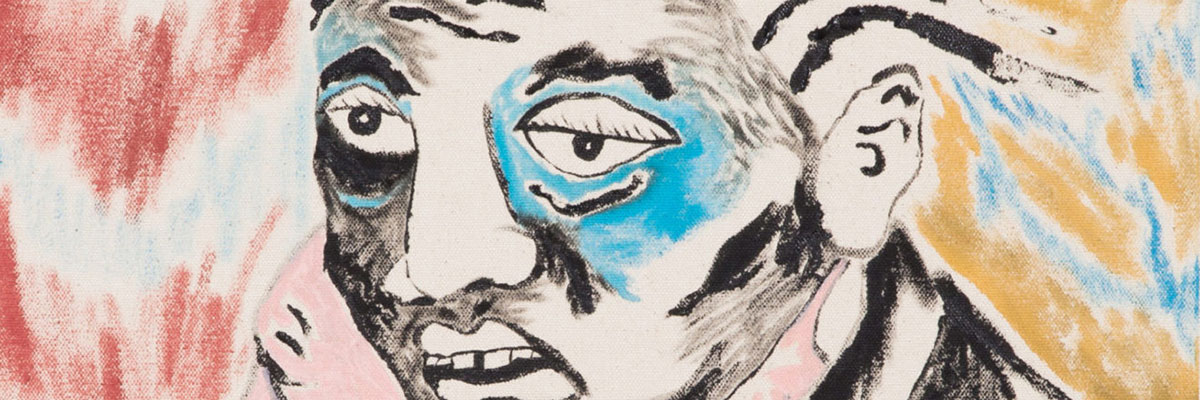
Open Painting – 60453
T/R 7-9:50pm | Prof Ranee Henderson
This course is designed to help promote a painter’s development conceptually and technically. It encourages students to evolve their own ideas through a proposed series of carefully conceived paintings. Through research and studio experimentation, students may explore issues of scale, surface, materiality, process, and storytelling with the goal of discovering a combination that exemplifies their intended meaning. Class critiques, peer-to-peer studio visits, and quality studio time will enrich each painter’s conceptual and technical base and promote creative growth. Enthusiasm and varied perspectives will be applauded.

Expanded Drawing – 60455
M/W 11am-1:50pm | Prof Alli Lemon
Expanded Drawing explores drawing as a dynamic practice that moves beyond the page. In this course, students will experiment with scale, materials, and technology to push the boundaries of what drawing can be. Looking at artists such as Julie Mehretu, Nicóla Lopez, Sougwen Chung, and Casey Reas, we’ll explore how to create new processes and tools for drawing.Through hands-on projects and collaborative exploration, we’ll rethink mark-making as both a physical and conceptual process, engaging with large-scale techniques and new media. This class is designed for students ambitious to challenge their assumptions, expand their visual vocabulary, and discover unexpected possibilities in the act of drawing.

Open Print, Drawing, and Photo Workshop – 60460
T/R 10am-12:50pm | Prof Kim Beck
A flexible, interdisciplinary studio, this course offers the opportunity for exploration across printmaking, drawing, and photography. Rather than building toward a single prescribed outcome, the workshop emphasizes process, experimentation, and skill-building, encouraging students to move fluidly between media or integrate them into hybrid projects. Alongside self-directed work, students will participate in regular demonstrations such as the introduction of relief, monotype, and screen print, photopolymer plates, cyanotype, and experimental drawing . The workshop fosters a collaborative and supportive atmosphere where students can push technical boundaries and expand their visual language.

Advanced Comics Workshop – 60464
M/W 7-9:50pm | Prof John Peña
In this course, students will develop, storyboard, and revise a long-form comic or sequential narrative. Each student will create a detailed production schedule to which they will adhere over the course of the semester. To strengthen and refine students’ visual storytelling skills, the course will also include workshops focusing on storyboarding/layout, character design, creating custom digital fonts and book design. Additionally, there will be ongoing critiques and peer editing sessions designed to provide valuable feedback on each student’s work. Finally, the class will work in small groups to design, curate, print and publish a collaborative book highlighting each student’s work.

Figure Painting – 60478
M/W 2-4:50pm | Prof London Williams
Figuration in painting will never go out of fashion! This course explores the processes, methods, and strategies of representing the human figure through various approaches to painting. Students will develop their own approach to figurative representation through studio practice, observation, and reflection. Lectures and research will trace the evolution of figure painting across history and into the present, engaging artists such as Naudline Pierre, Amy Sherald, and Kerry James Marshall as guides to contemporary practice. Through this investigation, students will uncover personal symbols, metaphors, and methods that deepen their connection to the figure and its expressive potential.

Art & Science – 60490
M/W 2-4:50pm | Prof Rich Pell
This course is an experiential dive into artmaking that utilizes the tools and methods of science. Students will become proficient in microscopic photography and video, the culturing and care of several microorganisms, and the discussion of the philosophical and ethical aspects of this work. The course is extremely relevant to BSA, BCSA, or any interdisciplinary pursuit that crosses between the arts (in general) and the sciences (in general). Students should come fully prepared to look up unfamiliar terms, to learn concepts that do not come easily, and to pursue research questions with passion and curiosity. Prior experience with sculpture, electronic media, or lab-based science courses is encouraged.
CFA PHOTOGRAPHY
CFA Photography courses are available to students of all disciplines across CMU’s campus.
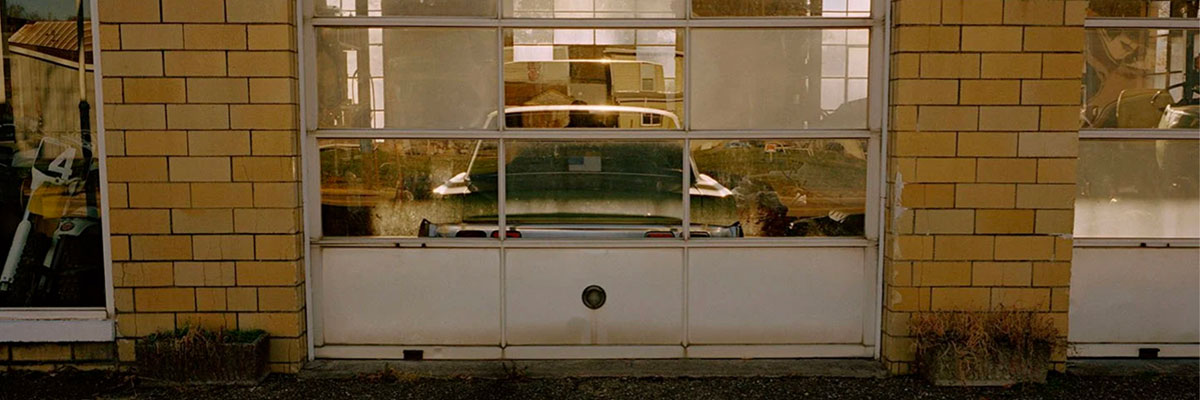
Darkroom to Digital Photography – 62113 (Mini 4)
M/W 2-4:50pm | Prof Aaron Blum
Formed around a series of workshops, this course will integrate digital and analog photography together to help students develop a unique image making practice. Students will use darkroom techniques and analog cameras with digitally enabled capture devices to merge long-standing photographic traditions with contemporary approaches. Basic techniques will be reviewed but the course will quickly progress. Course highlights include, but aren’t limited to: film scanning, Photoshop with film in mind, using analog cameras with digital capture devices, and exploring the distinctions between analog and digital output. Knowledge of basic camera principals recommended but not required. A lab fee is charged for this course.

Alternative Photography: Contemporary Antiquarian Printmaking – 62208 (Mini 3)
M/W 2-4:50pm | Prof Aaron Blum
This course will explore alternative photographic techniques and concepts in an effort to extend the boundaries of the photographic image. Through the course we will investigate contemporary digital imaging techniques and apply them to turn-of-the-last-century hand-applied emulsions. Subjects covered are digital imaging, digital negative printing and workflow, hand-applied emulsions, alternative uses of Polaroid photography, and concepts and theory of the still image. As we move through the course we will also consider the theory and history of photography and create images that are not standard in today’s imaging practices. A diverse range of contemporary photographic work will be presented to increase students’ visual awareness and understanding of the possibilities inherent in the medium. Through work/review sessions, students will evaluate their own ideas and judgments in pursuit of a well-communicated image. A lab fee is charged for this course.

Black and White Photography II – 62241
T/R 2-4:50pm | Prof Jamie Gruzska
Black and White Photography II continues developing your technical skills in analog photography by introducing medium and large format cameras and prints. Large format view cameras remain the state of the art in control and quality in both film and digital photography. These cameras as well as unusual panoramic and pinhole cameras will be supplied. This course emphasizes aesthetic development and personal artistic growth through individual tutorials and group critiques, and will help to build professional level photography skills. Additional topics include digital printing and negative scanning, advanced monotone printing methods, and a focus on exhibition and folio presentation. Students are responsible for the cost of photo paper and film, and a lab fee is charged for the course.

Contemporary Photographic Theory – 62244
T 2-4:50pm | Prof Karen Antonelli
In his 1984 review of his talk, Something about Photography, Victor Burgin writes: “It seems reasonable to assume that the object of photography theory is, at base, the photograph. But what is a photograph?” Photography is a complicated and slippery medium to define, widely employed, in multiple contexts, for a variety of purposes. Nonetheless, despite its mutability, the photographic image has its own inherent specific characteristics that transcend equipment and process. After almost two centuries of vastly changing technologies, so many of us are still engaged in the very same act of using a device to put a frame around a portion of the world and freeze it in time. So, what is it we are doing? What does it mean? How does the resulting image function? And how do the images we consume shape what we think we understand about ourselves, the world, and the other people in it? In this course, students will consider the ideas of writers, thinkers, curators such as Stephen Shore, Gerry Badger, Charlotte Cotton, Thierry de Duve, Jan Baetens, David Campany, Mark Alice Durant, and Kate Palmer Albers, amongst others. Coursework will consist of group discussions, theoretical readings and writing, research assignments, examining the practices of photographers and their images, gallery/museum visits, and individual presentations.

Portrait Photography – 62245
M/W 2–4:50pm | Prof Ross Mantle
Portraiture maintains a unique standing in photography for its direct and collaborative relationship between an individual and a photographer. This course will examine this relationship and the larger contexts which provide the conceptual framework for deriving meaning and understanding from an image of another person. We will study the theoretical and practical aspects of portrait photography in both studio and environmental settings, providing students with an understanding of the genre by developing both technical and conceptual skill sets. Students will utilize analog and digital equipment, learn studio lighting techniques, develop approaches to working with natural light, and explore methods of printing and presentation. Students will gain knowledge in the development of portraiture through the work of notable figures in the medium’s history and contemporary field, including August Sander, Dorothea Lange, Walker Evans, Dawoud Bey, Milton Rogovin, Rineke Dijkstra, Zoe Strauss, Susan Lipper, Justine Kurland, Stefan Ruiz, Larry Sultan, Carrie Mae Weems, Roy DeCarava and Alec Soth. Class discussions, readings and critiques will provide an outline for completing both single and serial image assignments. A lab fee is charged for this course.

Photography and the Ineffable – 62279
F 10am-12:50pm & 2-4:50pm | Prof Bryan Martello
This course explores the relationship between photography and the indescribable, intangible, and hard-to-see. From the spiritual, to the sublime, to the abstract; we will review different frameworks for thinking about the ineffable and how it relates to photographic work. Students will explore these themes through weekly presentations, discussions, assignments, writing workshops, and critiques. We’ll look at artists who think critically about photographic representation and investigate a heightened sensorial interpretation of the world. This class will encourage experimental methods and approaches to photography. A lab fee is charged for this course.
Art Electives for Non-Majors
These courses to make and learn about art are open to all students across campus. No previous art experience is required or expected!

Cultural History of the Visual Arts: The Modern Period – 60106
M 7-9:20pm (Section A) & W 7-9:20pm (Section B) | Prof Maria Elena Versari
Have you ever felt that you liked an artwork but couldn’t explain why? Do you have questions about art that you were always afraid to ask? This course is conceived to give students the tools to feel at home when visiting a museum and talk about art in social, business and academic settings. It is organized over two semesters, but students can take only one of the two courses. Covering the period from the 1800s to the 2000s, this spring semester class will look at masterpieces and lesser-known works that define our idea of what art is and what role it has in society. You will be encouraged to ask the questions you always had about art but were afraid to ask!
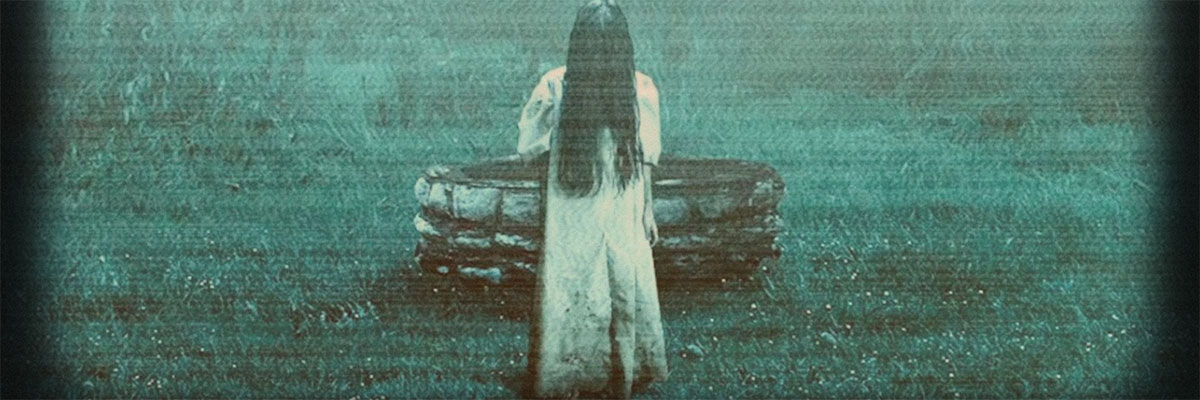
The Ghost Film: Spirits, Haunts, and Ghouls Across Cultures – 60108
T 7-9:50pm | Prof Liz Kurtzman
What is a ghost? A memory, a curse, a soul with unfinished business? The unquiet dead appear across cultures: in religious practice, in folklore, and, of course, on screen. They haunt our homes and our national memories, complicating our understandings of ourselves and of our histories. In this course, our hunt for cinematic ghosts will span over a century and stretch across the globe. We will study how spirits challenge the boundaries between the living and the dead, reality and fiction, past and present. Together we will watch films featuring spirits comedic and frightening, and we will consider the enduring power of the ghost as a narrative figure, a spiritual metaphor, and a symbol of all that will not stay buried.

Ceramics – 60136
M/W 10am-12:50pm (Section A) & 2-4:50pm (Section B) | Prof Yoko Sekino-Bové
An introduction to three-dimensional form in clay, with access to our ceramics facility and kiln firings. Skills covered include hand building, sketching and modeling for larger fireable clay forms, throwing on the wheel, and basic glazing techniques. Discussions will include contemporary artists working in ceramics, as well as historical examples, and various approaches and techniques for working in clay.

Drawing – 60157
M/W & T/R 10am-12:50pm | Profs John Guy Petruzzi & Paul Mullins & Alli Lemon
Drawing is the foundation of all the visual arts. In this class, you’ll learn perceptual, analytical, and structural drawing skills that allow you to both more accurately and more expressively create an image on paper. You’ll try various methods of creating pictorial and illusionistic space; recording the external world of light and form; and making visible the internal world of the heart, the mind, the soul.

Disordered Attention, Reordered Self: Art and Identity Onsite and Online – 60331
W 10am-12:50pm | Prof Elizabeth Chodos
This interdisciplinary seminar investigates how ubiquitous, networked technologies, such as smart phones, have reshaped the conditions of spectatorship and the construction of selfhood in contemporary art. Anchored by Claire Bishop’s recent book, Disordered Attention: How We Look at Art and Performance Today, the course explores how digital platforms, algorithmic feeds, and hybrid exhibition formats have disrupted traditional modes of viewing and engagement, giving rise to fragmented attention and new forms of subjectivity. Through critical readings, animated seminar discussions, artist case studies, and written analyses of online and onsite exhibitions, students will examine how artists respond to and reflect the shifting dynamics of attention, presence, and identity in a media-saturated world. This course emphasizes discursive modes of interpretation and will help students hone their critical thinking skills and ability to translate developments in visual culture into meaningful discourse.
PROFESSIONAL DEVELOPMENT
Enrollment in professional development courses is prioritized for juniors and seniors in the BFA and BXA-Art programs. Sophomore BFA and BXA-Art students can enroll with faculty permission if and when space is available.
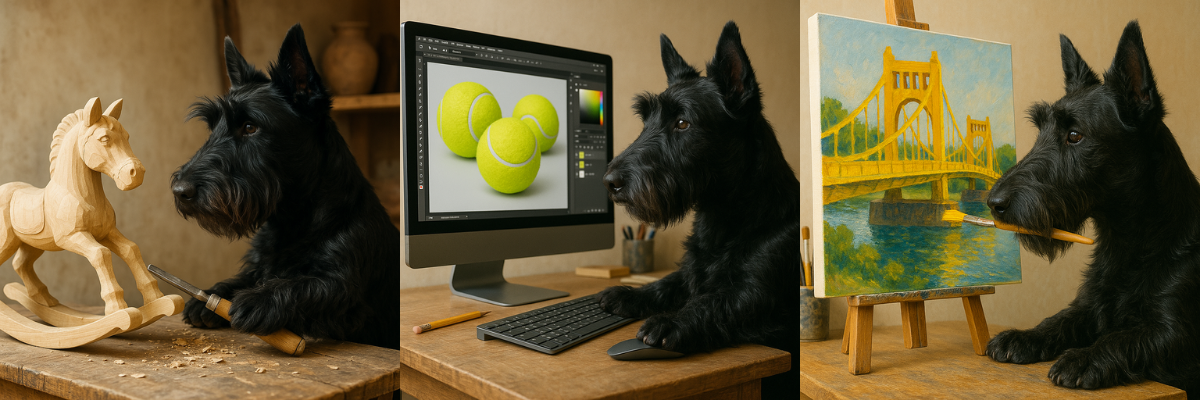
Working for Yourself in the Creative Marketplace – 60348
M 7-9:50pm | Peter DePasquale
Students leaving fine art programs face unique obstacles in securing and maintaining financially sustainable work. Many find themselves working multiple jobs while searching for an opportunity that aligns with their education. Because of this, many find self-employment as a viable option, as it’s immediately accessible, generates a quicker cash flow, and is generally relevant in regards to their intended career paths. In a recent career trend survey from the platform Handshake, nearly 75% of 2024 graduates planned on pursuing entrepreneurship at some point in their career. Now more than ever, a variety of tools are available to help individuals kick off self-employment — however the learning curve for finding, curating, and using these resources can be steep. The goal of this course is to expedite this learning process by providing direct insight into the world of the micro-business creative industry, and create a space where students can feel supported and individually guided within catered interests. Coursework will include topics such as building an audience, creating products, navigating digital and in-person marketplaces, professional development and best business practices, understanding legal requirements, and general financial strategies. Gaining a comprehensive overview of what it means to work for yourself is a great way of investing in longer term career goals.



